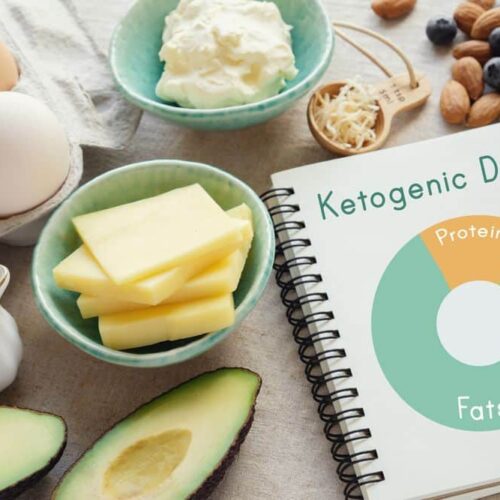Understanding Dietary Supplements: An Overview
Dietary supplements, as defined by the Dietary Supplement Health and Education Act (DSHEA) of 1994, are products intended for ingestion that contain a “dietary ingredient” aimed at supplementing the diet. These dietary ingredients can include vitamins, minerals, herbs or other botanicals, amino acids, enzymes, and many other substances. They come in various forms such as tablets, capsules, gummies, powders, as well as drinks and energy bars.
What are dietary supplements?
Dietary supplements are products designed to complement your diet. They provide nutrients either extracted from food sources or synthetic, individually or in combination, in order to increase the quantity of vitamin or minerals consumed. This class of nutrient compounds includes:
Vitamins
Minerals
Fiber
Fatty acids
Amino acidsDietary supplements can also contain substances that have not been confirmed as being essential to life but which are marketed as having a beneficial biological effect.
Common types of dietary supplements: vitamins, minerals, herbs, and more
There are a wide range of dietary supplements available on the market. Some of the most common ones include vitamins D and B12; minerals like calcium and iron; herbs such as echinacea and garlic; and products like glucosamine, probiotics, and fish oils. Multivitamins are also popular and often include a variety of these ingredients. These supplements may help you get adequate amounts of essential nutrients if you don’t eat a nutritious variety of foods. However, they should not replace a balanced diet, rather, they should supplement it.
The Role of Supplements in a Healthy Diet
Dietary supplements, as the name suggests, are designed to supplement your diet, not replace it. They can provide additional nutrients when your diet might be lacking or when certain health conditions cause a deficiency. More than half of all Americans take one or more dietary supplements daily or on occasion, with common supplements including vitamins, minerals, and herbal products.
Supplementing your diet: When is it necessary?
Supplementing your diet may become necessary when you’re unable to get all essential nutrients from food alone. For instance, Vitamin B12 mostly comes from meat, fish, and dairy, so vegans may consider taking a supplement to ensure they get enough of it. Pregnant women or women thinking about becoming pregnant should consider certain supplements such as folic acid. Adults, especially women, who don’t consume adequate calcium in their normal diets also may benefit from a calcium supplement. However, it’s crucial to discuss with your doctor what supplements you’re taking so your care can be integrated and managed.
The importance of a balanced diet: Can supplements replace food?
No matter how many supplements you take, they can’t replace a balanced and varied diet. Foods provide greater nutritional value and macronutrients such as carbohydrates, proteins, and fiber that can’t be replicated by supplements. A stroll down the pharmacy aisle will bring consumers face to face with a wide array of vitamin and mineral supplements. However, one must remember that they’re called supplements for a reason – they supplement the food you eat and were never intended to be the main source of vitamins and minerals. So while dietary supplements can help fill in the gaps in your diet, they cannot replace the need for a varied and balanced diet.
Potential Benefits and Risks of Taking Dietary Supplements
Dietary supplements are a popular way to enhance overall health and fill nutritional gaps in the diet. They can provide essential nutrients, such as vitamins, minerals, amino acids, and other beneficial substances. For instance, calcium and vitamin D supplements can support bone health, while fish oil is known for its heart health benefits. Imagine a busy professional who struggles to eat a balanced diet due to their hectic schedule. By taking dietary supplements, they can help to add the additional necessary nutrients that may be missing from their daily food intake.
How supplements can enhance overall health
Some supplements may play a useful role in maintaining and improving overall health. They can help meet daily requirements of essential nutrients, especially for those who have dietary restrictions or cannot consume certain foods. For example, vitamin B12 supplements are beneficial for vegans and vegetarians who may not get enough of this vitamin from their diet. Furthermore, certain supplements may help manage some health conditions. For instance, folic acid supplements are recommended for pregnant women to reduce the risk of birth defects. Let’s say an individual suffers from vitamin deficiency in vitamin D due to limited sun exposure; a supplement can help maintain adequate levels in the body.
Understanding the potential risks and side effects of dietary supplements
Despite their potential benefits, it’s crucial to understand that dietary supplements also carry health risks. They may interact with prescription drugs, leading to adverse reactions or reducing the effectiveness of medications. For instance, antioxidant supplements like vitamin C and vitamin E might reduce the effectiveness of some types of cancer chemotherapy. Moreover, excessive intake of some supplements can lead to harmful side effects. For example, high doses of vitamin A can cause headaches and liver damage.
It’s important to note that dietary supplements are not intended to diagnose, treat, cure, or prevent diseases. Therefore, it’s crucial to consult your healthcare provider before starting any new supplement regimen.
Complex med schedule? We solved it.




















